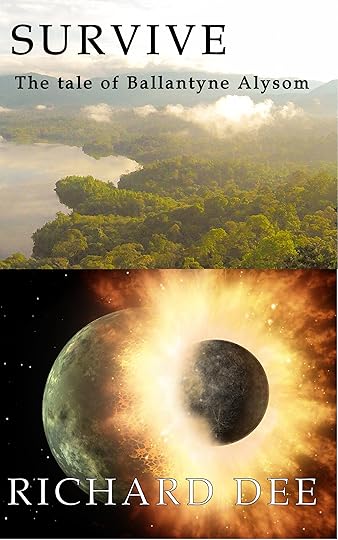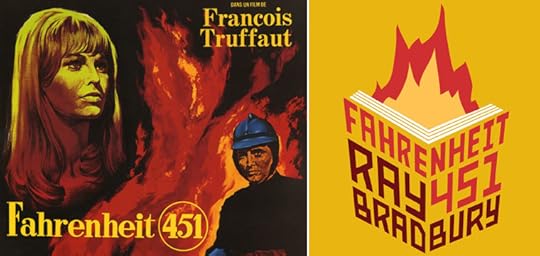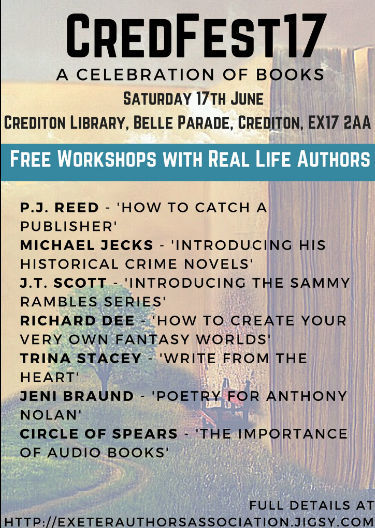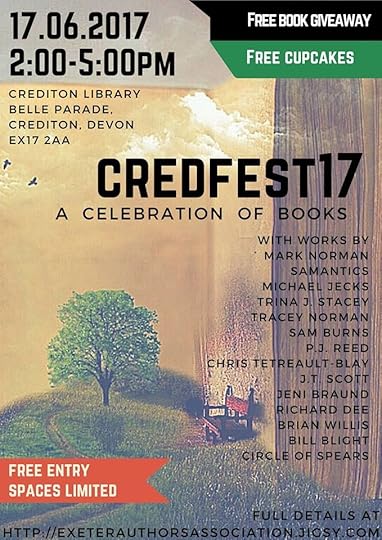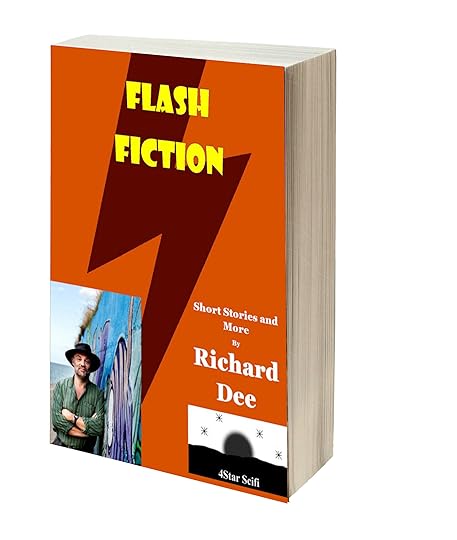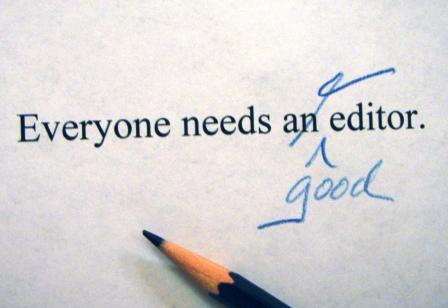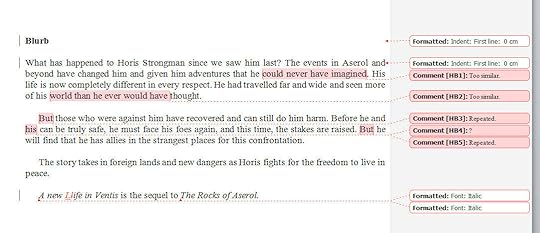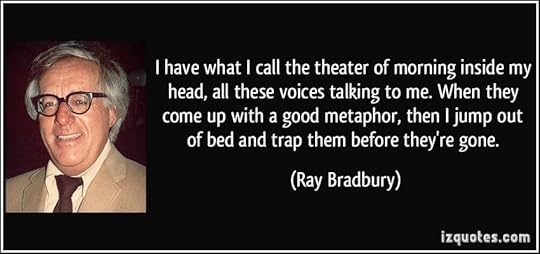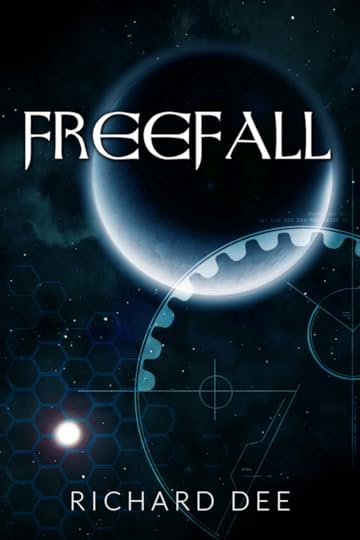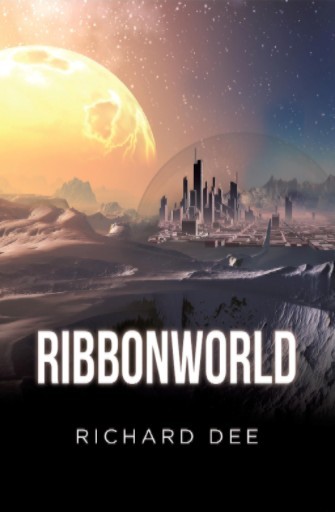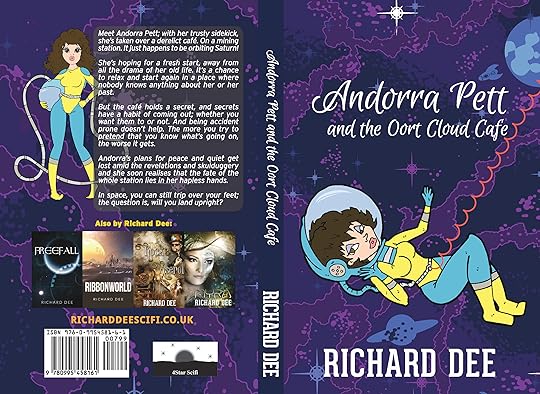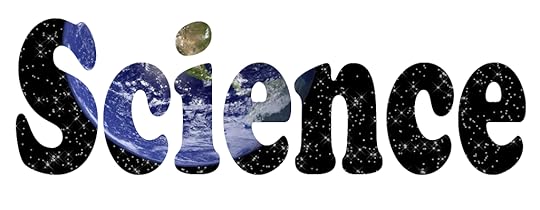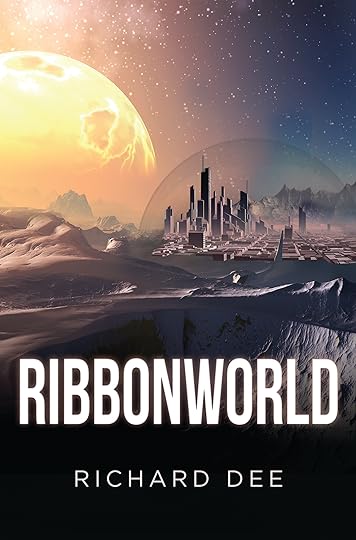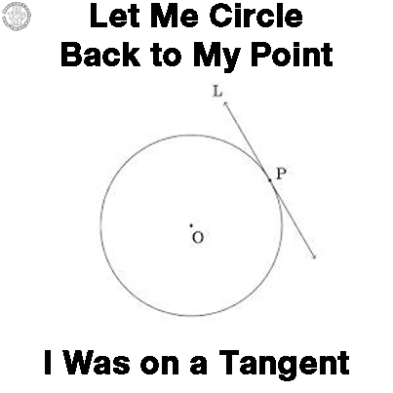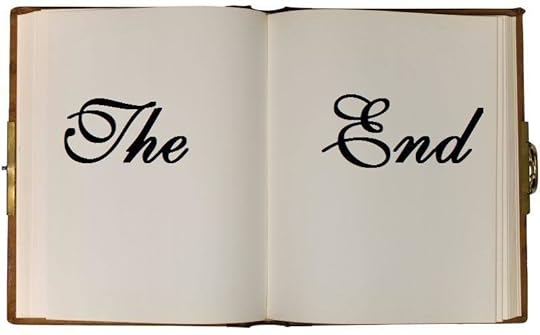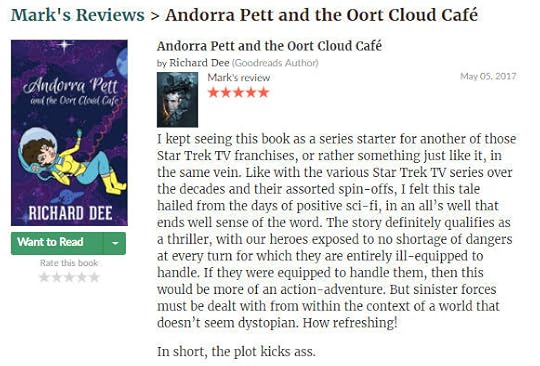Richard Dee's Blog, page 96
June 10, 2017
Stuck in the middle, or Write what you’re told!
Any excuse for a bit of nostalgia,
You might be surprised to find that I don’t write one book at a time. In fact, I keep several stories on the go. Some of them are very well advanced, others are little more than basic ideas. I also have a list of projects that I think might develop. It helps me to switch around when the thoughts for one are slow in coming, moving away often gives me a fresh burst after I have left a story for a while. And as I said recently, I believe that the story won’t come out until it’s ready to be told, which can be frustrating. As an independently published author, I’m fortunate in some ways. I don’t have an editor breathing down my neck, or a deadline looming. And my method keeps me away from the dreaded writer’s block, at least so far.
I’ve noticed that I always seem to come to a grinding halt at around the 60,000-word mark, in just about every story that I’ve written. I guess that it’s like the ‘wall’ that runners talk about, without the physical discomfort, fortunately! I have to leave it for a few weeks and come back to it, which is where the other projects come in.
I have to leave it for a few weeks and come back to it, which is where the other projects come in, I can keep writing on one of them.
The voices in my head that dictate to me, (other writers will know what I mean here) decide what they want to tell me, in what order, and when one lot gets fed up with telling their tale, then there are others ready to have a go. At least, that’s how I explain it.
Initially, I intended to spend some time focusing on short stories, I have several that need a little work to get them finished, with the imminent publication of my second collection, I wanted to have some spares in case my editor and beta readers thought that any of the ones I had selected were not good enough.
But, as usual, things have not quite worked out quite as I planned. I had a big idea for Survive, and just had to get it down, now I have spent most of the month on that, and written over 30,000 words. Not a single one has been added to any of my short stories.
In consequence, I’m right back where I started from, I still have six, half completed short stories, and now I have another novel that’s 30,000 words further on but I’m still stuck. Although my idea for Survive was a good one, I still haven’t got to the point where the story is finished.
And it’s not just about the word count; I’m not too bothered about that. I would like my stories to come in at around the 75-80,000 word total, but if they don’t, it’s not the end of the world. And that’s purely because a lot of the books that I read while I was at sea or in my formative years were around that size and they seemed a good length to tell a story well.
I don’t think that I’m ever (?) going to write Tolkien or Martin-Esque 200,000 word epics. One of my favourite books, Fahrenheit 451 was only 47,000 words or so, proving that you don’t need quantity to tell a good story. And often, the extra wordage consists of extraneous description or what could be called “padding.”
I guess that what this has all been telling me is that you have to write what’s there in your head. That might not be what you had wanted to write, or even what you thought you needed to do. It turned out to be the novel, so I did that.
As a bonus, the passages I’ve added to Survive have given me a few ideas for another project that I can put on my list.
And from another source entirely, I have a prequel to Ribbonworld, I already thought of a third story in the Balcom series, have written about 3,000 words and have even given it a title, The Lost Princess. In working out what I could do with it, I wondered if I couldn’t also do a ‘zeroth’ story in the series (Fans of Asimov will get the reference), and go back to the events that are referenced in Ribbonworld, the real start of the story if you like.
And that’s all on top of everything else that’s going on, I’ve re-organised this website, there were a lot of things that needed changing and I’d put them off. My first short story collection is now available FREE, just click here to get your copy, and the new collection will be available, also FREE very soon.
I will be at Credfest on June 17th, which I’m looking forward to, reading from both Andorra Pett and The Rocks of Aserol. Not only that, I have agreed to host a workshop on World Building, which should be a lot of fun. Hopefully, the event will be recorded for posterity, I can then put the video/audio up on here for you to see and add it to my YouTube channel, which you can find HERE
As ever, your comments would be appreciated. Let me know what you think below.
The post Stuck in the middle, or Write what you’re told! appeared first on Welcome to my Worlds..
June 9, 2017
Get your FREE Book of Short Stories
Step into the worlds of Richard Dee.
Imagine the magazine of the future, or how to fake your own demise. Maybe it’s time you were tested to prove your adulthood? Or perhaps you’re a sleeping space traveller?
All these ideas and more are explored in this collection of short stories. They’re complemented by excerpts from my first three novels and two teasers of work in progress.
The post Get your FREE Book of Short Stories appeared first on Welcome to my Worlds..
June 4, 2017
The edit.
There are those who think that they can edit their own writing. I know of a few self-published authors who don’t bother with professional edits for their work. Personally, I think that the cards are stacked against self-published authors as it is. There are those in the book trade who don’t like us and what we do, why give them another chance to dismiss our work as poorly prepared?
As far as I’m concerned, my physical products must be as good as or better than any mainstream publication. Along with the importance of good cover design that means that the words have been properly edited and formatted, by experts.
I’m lucky to have a wonderful editor. She has just sent me the results of her first look at my latest manuscript, the first time that anyone apart from me has seen it, together with extensive notes and a list of comments.
Now it’s up to me to try and sort it all out and turn it into a document that is ready for beta readers. Hopefully, by the time that I’ve finished, it will resemble more of a completed novel than it does at the moment.
So I thought that you might like to see how I go about that.
The first thing that hits you when you look at your edited manuscript is how little you really knew of it.
It’s easy to say, “I’ve been working on it for months, I know every word and comma,” and naturally you’re in love with what you’ve written. The trouble is, your familiarity has blinded you to its faults, and if it’s anything like one of my first drafts, it has a whole load of faults.
Just as an example, here’re the editor’s comments on the proposed blurb, as you can see it’s only a few lines of text but I thought that my version was pretty good at summing up the stories themes without giving too much away.
Wrong!!!!!
And the rest of the 254 pages go in a very similar vein. The remarks are all concise, detailed and pertinent.
When I got the first edit that I ever submitted back and saw all the red and blue and yellow, it looked like some demented spider with inky feet had crawled all over my beautiful prose. I thought that I had failed in some way. I wondered if or even why my superb creation deserved such a savaging.
It took me right back to school and all the feelings of fear, which was often helped by the psychological warfare waged by teachers.
Mine mistakenly thought that by telling me I was lazy, it would make me work harder. In fact, it just made me think, ‘if you can’t be bothered to be constructive and help me, then I can’t be bothered to try.’
But now I embrace the spiders because they mean that I can get closer to perfection, or at least to create a better version of the tale I want to tell. They point out the things that my familiarity didn’t let me see.
Basically, they are a reader’s view.
My editor might not like my genre, in fact in some ways it may be better if they don’t. They also refrain from being anything other than neutral in their comments. That’s great; I don’t want praise, just the errors pointed out and an unbiased view of the document as a whole.
Once it has been honed, that will be the time for the beta readers to have a look. They’re not editors, just people that I trust, the ones who are part of my target audience.
I went off on a bit of a tangent there, to get back to where I was, I’m faced with this document and I have to start correcting it.
I tend to concentrate on the comments, they’re the important bit at this stage, the formatting and such are sort of beyond my level of expertise so I just skim through them. Unless I can see that a comma, for instance, has been put in the wrong place and messes up the sense of what I want to say. But that’s pretty rare; my editor knows what they’re doing with the presentation of my work correctly on the page. I can leave that to them, I want to get into the comments.
The comments are more important because they show me what the editor thinks I’m trying to say. They show me what a reader will think, such as “?” or “but didn’t you say…x…?” And they point out things like repeated words and other bits and pieces that slow the action down.
This is what I couldn’t see because I was too close, they are the first things that my editor saw, so they must be the first things that a reader will notice.
And that’s valuable information. That’s what it’s all about.
So, I will address each comment and see the sense of it. Then I will amend it, or not, all depending on what I think it does to the progression of the narrative. It might be that the comment will stay and it’s the surrounding text that gets altered.
In fact, the act of re-reading the comments often changes my mind; it gives me a starting point for changes or amplification. The whole direction of a scene or of a plot line can hinge on a comment such as “why did they say/do that?” In fact, I have written whole sequels based on the comments of an editor.
So far from being the destroyer of your work, the edit can often bring out the best in your writing.
and here’s the new version of the blurb, after revision.
“What has happened to Horis Strongman since we saw him last? The events in Aserol and beyond have changed him and given him adventures that he could never have imagined. His life is now completely different in every respect. He had travelled far and wide and seen things that he would never have thought were possible.
But those who were against him have recovered and can still do him harm. Before he and those he cares for can be truly safe, he must face his foes again, and this time, the stakes are raised. Before his journey ends, he will find that he has allies in the strangest places for the final confrontation that he hopes will secure his future.
The story takes in foreign lands and new dangers as Horis fights for the freedom to live in peace.
A new Life in Ventis is the sequel to The Rocks of Aserol.”
Is that better? What do you think? Let me know via a comment below.
And if you want my advice, get a good editor; they’re worth their weight in Gold!
The post The edit. appeared first on Welcome to my Worlds..
May 28, 2017
Voices in my ears.
And now a link to some late 1970’s music, still sounding good!
“♪♯You didn’t know what you were looking for, ’till you heard the voices in your ear♯♫.”
“Voices,” by Cheap Trick (Dream Police, 1979)
Ok, so I admit it, I hear voices in my head. In fact not only do I hear voices they tell me their life stories and I write them down.
But whereas in the past, I might have expected a visit from some white-coated gentlemen and one of those nice jackets that do all the way up the back, I can get away with it by saying “I’m a writer.”
It’s a strange sensation when the voices first appear, I never expected to be a writer.
To give you a bit of background, I couldn’t be bothered at school, failed English and went to sea. There I struggled with writing letters home, even after all that I saw on my travels. I found it hard to put more than a few lines on paper, talking about the weather, or where we had been in and effort to say something; anything.
Later, it all changed, I think the catalyst was moving back to Devon; some sort of creative dam was broken and I started to write.
I’d had ideas before then, once I decided that I would write a book of short stories and I even made a few notes. They were based mainly on dreams that I could remember so vividly that it was almost as if I had lived them. They were all futuristic and I thought that one day, I might actually turn them into something more. But it never happened, until I came home to Devon.
I started putting the thoughts down, and I found that the more I wrote, the more the thoughts came into my head. I realised that the short stories I had planned and saved could be joined together. They made one longer tale and Freefall was born. Looking back at it now, I can see all of its flaws but I’m still proud of it as it is.
And the strange thing was, as I wrote it, I saw places where I could write other things, stories based on it that expanded the characters and situations.
A hotel I stayed in gave me the idea from which Ribbonworld was born, that gave me an idea for a sequel and so on.
I had a dream with a factory, and pipes snaking across a yard, there was steam in the air and water dripping. From that my Steampunk world of Norlandia grew into being.
Someone challenged me to write a “café on the beach” style sci-fi story, Andorra Pett was the response and has now grown into two finished books and two more ideas.
Once the voices get into your head and realise that they are being heard, they seem to invite their mates around. I can imagine them nudging each other, wherever it is that they are, “Hey lads, let’s get into Richards’ head, he’s listening.”
And now, when people ask me what happens when I write, I tell them that I see a video in my head, like watching a DVD of a film that you’ve never seen before and know nothing about. That’s my novel playing out for me in real-time; all I do is write down what I see happen, as it happens. But unlike watching a DVD, there are a few subtle differences.
When you press play, you see the film and don’t really know what will happen; it’s all a surprise to you. If you miss a bit, you can go back and have another look, you can slow the speed down to make sure that you don’t miss anything. Or if you really want you can skip on, even get a look at the ending.
Well, I can do all that with my novel, but there’s one crucial difference. I can’t fast forward. If I wanted to know how it all works out, well that’s tough! I have to wait and see.
So my endings are as much of a surprise to me as they are (I hope) to you.
That’s the way the story progresses, I can’t touch type so I watch the keys and not the screen. It comes as a surprise to me sometimes to find that my characters have said and done things that I never realised while I was typing. Sometimes I’ll read it back and find that the plot has moved off in another direction from where I thought it was heading.
I found it quite scary to begin with but once I got used to the idea that my mind worked in this way, I began to look forward to being able to shut myself away. Now I observe other worlds and write it all down. I could get as excited as any reader because it was as new to me as it would be to them.
The really deep question must be; where do these stories and characters come from? Part of me wonders if they aren’t just figments of my imagination; if somehow they’re some sort of future echoes that have slipped through the cracks from another place and time. Now there’s an idea for another novel!
So what do you think? Why not share your thoughts below.
The post Voices in my ears. appeared first on Welcome to my Worlds..
May 25, 2017
Special Offer
I’ve got several new posts to put up on the theme of my writing but I thought it was time for a bit of publicity.
Andorra Pett is released onto the unsuspecting world on Thursday, June 1st. I’m sure that all you loyal readers have ordered your advance copies, if not, well there’s still time to take advantage of the HALF PRICE offer on the eBook, making it £1.49.
Just click on the cover to go to the sales page.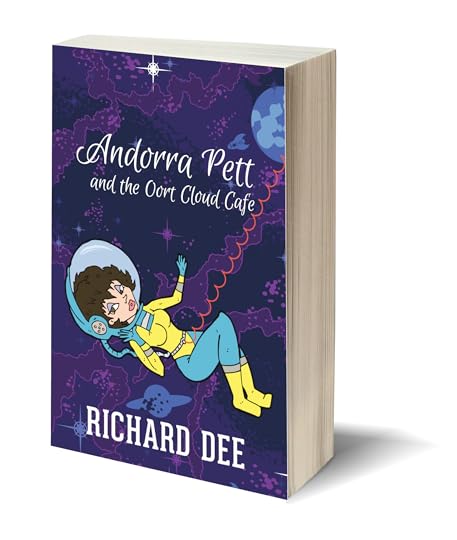
Also, I have a few paperbacks to offer at the special price of £5.99 signed and delivered. I accept credit cards and PayPal payments. If you’re interested in a copy, please email me at richarddeescifi@gmail.com and I’ll explain the process, don’t worry, it’s easy!!
And if you’re still wondering what it’s all about, CLICK HERE for Chapter 1.
The post Special Offer appeared first on Welcome to my Worlds..
May 21, 2017
It’s all about the science.
I thought that writing Science Fiction would be easy, after all, how can you research the future? And who can tell you that you’ve got your facts wrong?
After all, you can have anything you want in the Sci-fi world that you create, right?
Well, that was my first mistake, over time I’ve found that there is just as much background work needed as there is for any genre. In fact, I might go further and say that you actually need to do more research if you’re talking about the future.
That may sound weird but let me explain.
Every part of your world must make sense, there has to be a justification for the logic in all of it. When you look at the world today, in a natural and physical sense, then it all works. By that, I mean that there is cause and effect, a closed loop system if you like. There are no parts of how this planet works that require you to suspend disbelief, everything can be explained.
In your fictional world, the same must hold true. Everything needs an explanation. Now you can do this by basing it all on things that are true and expanding them in a logical way. But first, you need to know your basics. It’s easier to suspend disbelief in the fantastic if you can appreciate that there is a sound basis for it.
So before I write anything, I look at where we are in the field of science or whatever speciality that I want to invent my future in. I see what the position is now and what people are thinking may be possible in the future. Once you have that, you can weave your story around it. To be even more authentic, you can include the facts as we know them today in your work, so conversations could contain things like,
“Do you realise, people used to think…,” or
“When all this started they could only….”
Descriptions can also incorporate the basic fact and pull it in many ways; once you get started you’ll find that other things creep in, everything is connected and even in the future, stuff that we do today will still be relevant.
Do you get my drift?
To give you an idea of how this works for me, I wrote a story about a city under a huge dome on an airless planet. OK, it’s perhaps not original but it will do to illustrate the thought process involved.
First I had to think about the domes basic needs, it had to be strong, large and airtight.
We can build things like that now, maybe not huge ones on airless planets but certainly on land and probably under the sea. So I looked at the problems and how they had been solved. Obviously, we can do airtight and strong so the suspension of disbelief has to come with the size, I had to fit a city underneath it. I thought of using a lower gravity on my new world to make the dome lighter but that would cause other problems, all my characters would be floating around. Clearly, another way was needed.
Then I remembered a job I once had, I was Dockmaster at Tilbury and knew that the only thing holding the dock walls up was the pressure of the water in the enclosed dock. We had to constantly refill the dock as we used the lock to let ships in and out, there was a level beneath which the water MUST NOT FALL.
This comes back to the connection, we need air in our dome and air exerts pressure. So the pressure of the air could be used to help support the weight of the dome! Suddenly you can build a strong dome without the need for lots of supports, just as long as you keep the atmosphere at pressure. And you will do that because your inhabitants need to breathe.
And this was where I found other connections, little things that made it more believable. For instance, suppose that the dome had a leak? Nothing serious, just imagine an escape due to poor seals. That meant that atmosphere would need to be put in faster than it was leaking out. That was fine; I rather conveniently had a limitless supply of ice that could be turned into air, the side effect of all this movement of the atmosphere was a breeze. I liked it, it gave the place character, and also a plot issue, would they manage to keep the air flowing? Would the leak get bigger? What if the place converting the ice broke down, or was sabotaged?
The point of all that is to show you that you only require a few facts and a bit of lateral thinking to create something that we could do today, yet if you put it in space, it makes it seem futuristic.
Incidentally, if you want to find out more about the dome, and its breeze, the story is Ribbonworld.
To take another example, the holy grail of Sci-fi is faster than light travel, it’s needed for just about any story to work and it’s dealt with in many ways. If you stop to consider it for a moment, Einstein tells us that it’s impossible; yet every time we read about it, we are able to suspend disbelief.
Is that because we all secretly want him to be wrong?
My own theory is that we will, one day travel faster than light. How will we do it, well, in the usual way I expect, someone will discover it by accident, while they are looking for something else. It will make sense, be logical and even though it’s not indicated by our current state of thinking, will pass into the mainstream.
In fact, I liked the idea of the invention so much that I wrote a short story about it. And I gave the invention that makes it all possible a name, “The Padget Inverter!” Pretty good eh? I think it sounds authentic, just like any good invention should!
And all the other things associated with moving faster than light, things like time dilation, may be explained away or ignored by the properties of the Padget Inverter without causing problems in the credibility of the story.
So as long as what you write has a sound basis in fact, you can convince your readers. Once you’ve got them believing your version of the future, you can play around with the side issues to your heart’s content, safe in the knowledge that it’s all covered, wherever you go, they will be with you.
This is a brief post, I have a deeper series of articles about my creative process, find them here.
My take on faster than light travel and how I think that it came to be can be read here.
I will be holding a workshop on “Creating a fantasy world” at Credfest on June 17th in Crediton Library.
What do you think, does research matter? I’d love to get your opinion on just how much you’re prepared to accept in the world-building process. Please leave me a reply with your thoughts.
The post It’s all about the science. appeared first on Welcome to my Worlds..
May 14, 2017
Moving off on a tangent.
I thought that I wasn’t getting anywhere with a story I’m in the middle of writing, the plot seemed like it was getting predictable and I couldn’t think of how to hold anyone’s attention with it. I couldn’t even hold my OWN attention on it for long! I kept going off on a tangent and starting other things, rather than get on with it.
The story in question is called “Survive,” the proposed blurb explains the premise.
“What no man has seen before.”
Ballantyne Alysom is Galactographic! Magazine’s intrepid explorer, Davis Jansen is the cameraman he takes on his most dangerous expedition so far.
When things go wrong and the survivors of the group are stranded on an unexplored planet, Davis sees the real man behind Alysom’s carefully constructed public face.
When rescue arrives, Davis is faced with a choice; does the world need to know the truth? And which one’s story will they believe?
There’s an extract HERE
I liked the story and in my mind, it made perfect sense, but then, it’s been living there for several years on and off. I’ve written bits of it and left it and come back to it as it developed. Then, when I had about 40,000 words done, I realised; there wasn’t enough reason for readers to CARE about the characters to want to read it. It needed a better hook.
If I may head off on a tangent again; the more eagle-eyed of you may well have noticed that the name Ballantyne Alysom features in a previous work of mine, Freefall.
When I was writing that tale I had an idea that he might come in useful in something else. He was only a peripheral figure in Freefall, a useful bit of background to authenticate something else, but he entered my mind and sounded so potentially interesting that I thought he might be worth a spinoff.
So I invented a whole back story for him as a Galactic explorer and now I’m doing it again. Only this time I’m writing him from a different perspective because there is never just one way of looking at things. History is written by the winners after all, and in a story like Survive, the absolute truth may never be known, only the version of it that suits those lucky enough to…, well, survive!
There I go again, this time my tangent went off on a tangent; let’s get back to where I should be.
But then I thought, can’t I use the whole tangent thing as a driver in my storytelling?
I hope that I’ve had the big breakthrough. I’d been using short interludes in the story as a means of separating the action, and I wondered if going off on a tangent for a while wouldn’t do the job of keeping people’s concentration. What I have done is teased the ending and put in a side plot to make them wait to get it. And there’s a twist that hopefully no-one sees coming. I didn’t see it coming myself until it popped into my head!
And by diverting the action away from the main story, and making them wonder how I’m going to get away with what I’ve just done; I hope that I can hold the reader in long enough to want to get back to the main plot.
This really proves that the solution presents itself if you can be patient enough to wait for it. And in doing so, I’ve opened up a whole new set of possibilities for my characters.
And heading off in a totally different direction has unlocked other things in my imagination; I got ideas, a whole lot of them; about this story and also for the bits I’m stuck on in other work as well.
So now I have made progress on several other projects, and all because I was stuck in one. And because I decided to use what I had always seen as an irritating habit in a more positive way.
And in another tangential move, the cover that I showed you borrows an image from another idea, the jungle scene was part of one of the possible covers from another of my works in progress Jungle Green.n It never made it, I decided to go with the one below.
I’ll tell you all about it, that’s another tangent, in case you hadn’t noticed.
Jungle Green is the sequel to my 2015 novel Ribbonworld, it features some of the same characters, but this time they are concerned with the trade in counterfeit drugs and all that entails.
Here is my latest provisional cover, and the blurb
“TC is the wonder drug. Manufactured in secrecy on a remote planet at the edge of the galaxy, it makes world’s inhabitable; and Balcom Industrial lots of money. Then, suddenly, the people who need to take it to stay alive start to die!
For Layla Balcom, fresh from wresting control of her father’s inheritance from those who would have destroyed it, the news is devastating. Can the drug be flawed? Or is something else going on?
In the search for answers, Layla and those close to her find a web of lies and hostility. Then she is dragged into criminal activities and it becomes far more personal. It’s time to sort the good from the bad and protect Layla’s legacy.”
There’s an extract HERE
I hope that Jungle Green will be published soon. That, of course, assumes that I can get it finished without going off somewhere else.
What helps you stay on track? I’d love to hear your thoughts, please leave a comment.
The post Moving off on a tangent. appeared first on Welcome to my Worlds..
May 7, 2017
The Perfect Ending- how do you know when to stop?
I hate endings, whether it’s the end of a book or the end of a character, they’re painful to imagine and worse to write.
You can tell when a story has reached the end, events all move to bring your main characters together at the same point. Usually, there is nothing left of the plot at this time, except for the explanation of it all, the justification for what has happened or the big reveal, where one side tells the other what has gone on and motives are all brought out. Hopefully, by this time you (the reader) have got an idea of what’s going to happen; so you are either pleased to have got it right, or pleased to have been misled and amazed that you missed the clues, the re-telling of which very often form part of the final scenes.
Hopefully, by this time you (the reader) have got an idea of what’s going to happen; so you are either pleased to have got it right, or pleased to have been misled and amazed that you missed the clues, the re-telling of which very often form part of the final scenes.
As the author, I can generally tell when it’s time to finish, in my experience, there is a natural ending in my mind and once I get there, even if I can think of more, it would often be better put into a sequel.
However, if you’re not careful, the end can be the worst part of the story, recently I’ve had two different reactions to the end of my work.
One book seems to have ended too soon for a lot of readers, they have all said that they need to know more, and so I’ve written a sequel. The intention wasn’t to short-change them, I really thought the ending was appropriate. It’s gratifying to get feedback like that; I take it to mean that I’d managed to create characters real enough that people wanted to know more about them and to care about their futures enough to want to find out what I think happened next. At first, I wondered if I should have written more, then I decided that, by stopping when I did, I had done enough.
The other book has ended in an anti-climactic way for some, although not all, readers. Apparently, I upped the tension more than the ending could take and it was all a bit flat. That is my failing and I have to hold my hands up, but in my defence, that’s how it unfolded in my head. Again, that wasn’t a universal response; other people said the ending was good.
But isn’t life like that sometimes? The culmination of an adventure or a project can be a bit of a letdown, for so many reasons. Anticipation can ruin any event. In a way, I guess, writing imitates life, the end is not always perfect, sometimes the good guys don’t win. Sad but true!
I guess that just goes to prove that every review is subjective, everyone has things that they like and dislike, I have reviews that alternately praise and criticise the same thing in a story, I’m grateful for all comments, it can be strange the things that some people like though, minor characters that attract attention or little bits of subplot that just seem to grab someone’s attention.
And that’s where part two comes in, the death of a character! 
May 6, 2017
Pre-order Andorra Pett
My latest novel is now available for pre-order on Amazon.
Just click on the button to go to the sales page, and as a special bonus, the eBook is HALF PRICE at the moment, just £1.49 or $0.99 for a limited time.
And here’s a glimpse of the first review,
The post Pre-order Andorra Pett appeared first on Welcome to my Worlds..
May 1, 2017
Tipping Point, Exploring all the options in your writing.
There’s a point in every novel where someone says or does something that sets a bell ringing in your head. It might not be a big thing in the scheme of the story, very often it’s just a remark or an observation that helps move the plot along or provide a little bit of back story.
But it can be enough to start a whole new train of thought and it can lead you to some strange places. It has driven me to produce sequels, prequels and spin-offs. And very often, it might not be the thing that you think it will be when you write it. The idea takes on a life of its own and it’s almost as if the characters, not the author are driving the narrative.
In the same way, something that happens in one place can often make the transition to another, for example, I have used the idea of a farm in space in several novels after it started life as the setting for a short story. It works, it fits in and it’s not so far beyond the realms of possibility as to be unbelievable, so why not use it.
After all, if I’ve gone to the trouble of creating a world, complete with all the things needed for life, it seems a shame to waste it or keep it for one scenario and invent something else next time.
And it’s the same with a lot of the back stories; as long as they have a basis in fact they can be adapted to all my worlds.
I like to think that I have developed a series of plausible things for our future, like the farm in space; it’s something that we could do, and it’s not too far-fetched. It has a practical side as well as just being part of the story.
Other ideas, like the turbines I had installed in every bit of moving water to generate electricity in one of my earlier works, now seem to be gaining momentum as an actual thing that may help to solve our present energy problems. See http://waterotor.com
Or the back projection system I devised for aircraft that makes flying feel like you’re in a bubble. Perfectly possible, even with today’s technology, so why aren’t we seeing it?
I can’t claim any credit for these ideas, but it shows that solutions present themselves too many people, while some write about them others actually get on and produce them!
And science catches up with my ideas in other ways, now we are investigating the rings of Saturn, just like Andorra Pett will be doing. Again it’s just a logical thing to do. And like all these things, we very often don’t do them until there is a point to doing them. At the moment, it could be argued that there is no point in travelling faster than light, there’s nowhere to go and we’re safe enough here. But what about if we discovered a planet that could sustain us, or the earth was threatened with disaster, how quickly might we develop the means then?
Anyway, back to my original theme, in writing you often get to a place in the plot where your story could go in two ways, a bit like life but with one minor detail. In life, you have to choose one and can never find out what would have happened in the other, in writing you can explore all the different possibilities. I used this idea in my short story “Tales from the Sleepers,” which you can find HERE, or you can download as a pdf to read later HERE The story is taken from my collection Flash Fiction, which you can download FREE HERE
The post Tipping Point, Exploring all the options in your writing. appeared first on Welcome to my Worlds..


